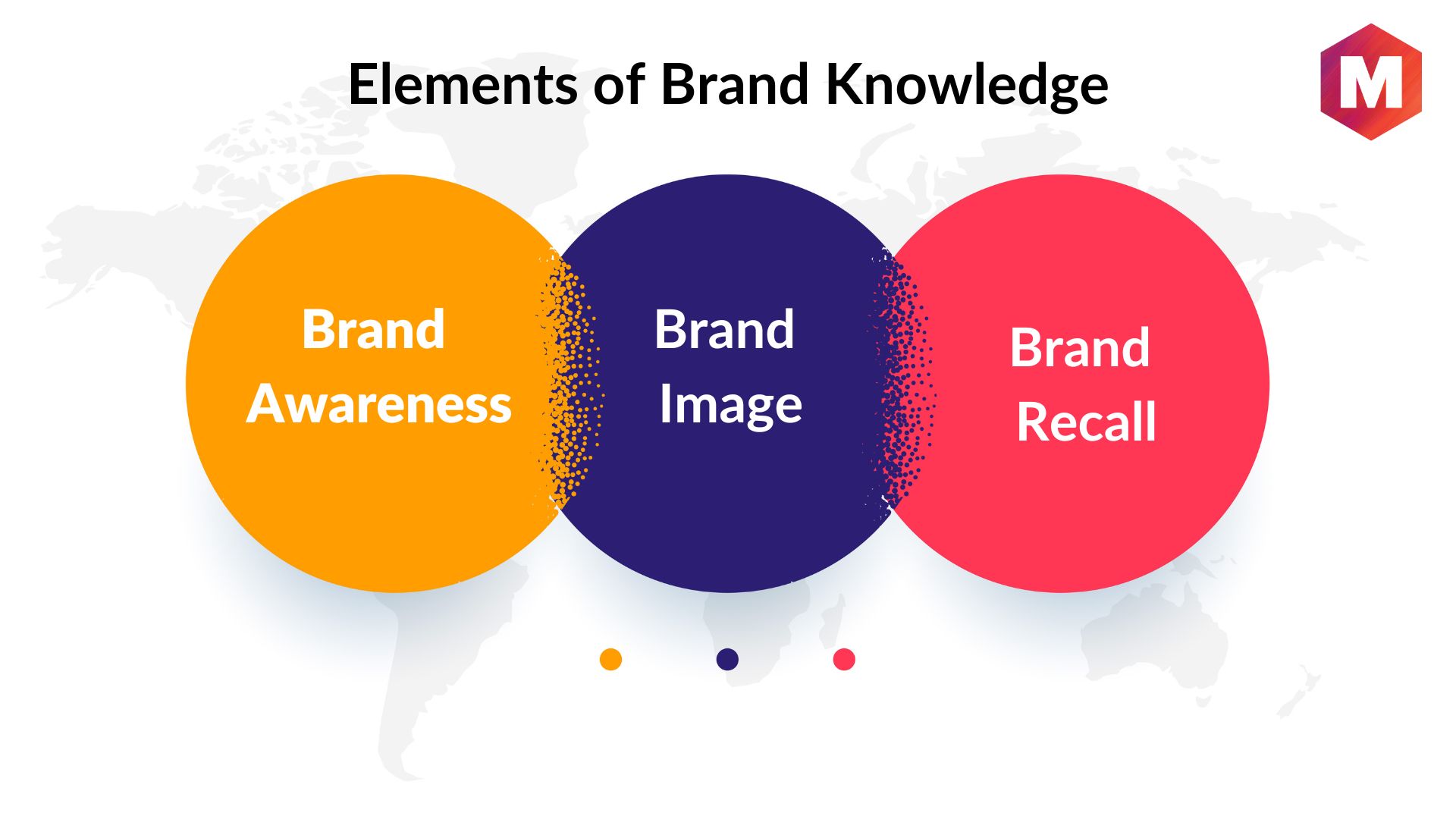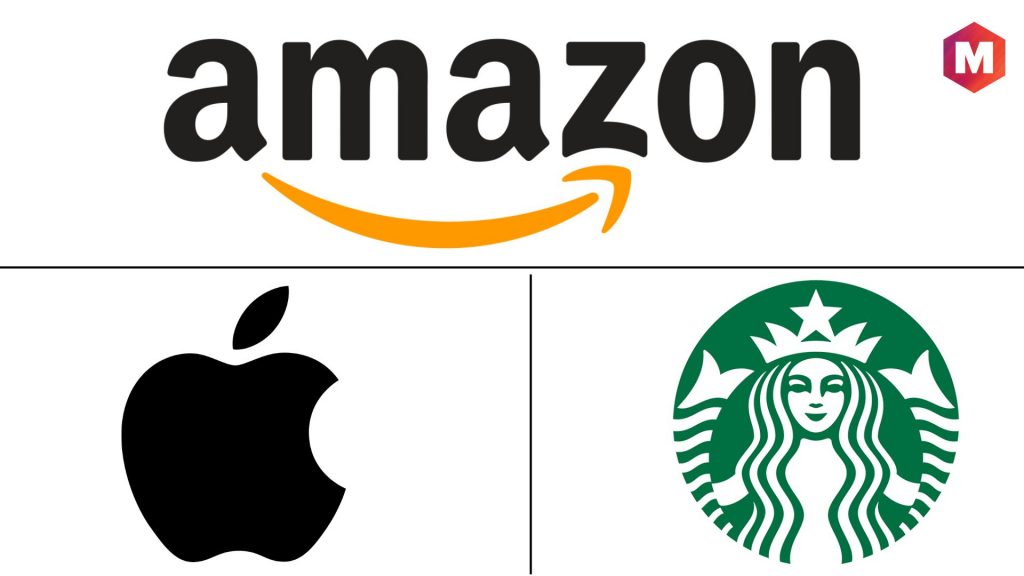Table of Contents
What is Brand Knowledge?
Brand knowledge is recognizing and understanding the features, benefits, and value of a brand’s products or services. Branding helps customers form expectations about what they can expect from a product or service, allowing them to make informed decisions.
Brand knowledge can be seen in how well customers can recall and recognize information about the brand, such as its logo, slogan, and other attributes. Brand knowledge also involves understanding how the brand is perceived in the marketplace, what it stands for, and its competitive advantages or disadvantages.
Brand knowledge is the consumers’ understanding of a brand, which encompasses both descriptive information (such as “this car is fast”) and evaluative statements (“I like this car”). This stored information helps individuals answer questions about brands and make purchasing decisions.
Brand-related thoughts, awareness, and image comprise brand knowledge which affects consumer responses (Keller, 1993, 2003). This happens when diverse information, such as attributes, feelings, benefits, thoughts, images, awareness, etc., are correlated to a brand.
Brand knowledge helps to create a positive impression of the brand and build upon its reputation. It is a key factor in the success of any brand. It allows businesses to create a brand identity for themselves and build customer loyalty by creating and promoting a brand that stands out.
Description
Brand knowledge is based on constant communication with consumers, allowing for a fundamental understanding of the product or service (Richards et al., 1998). Due to this, brand knowledge encompasses both explicit and implicit forms of learning.
Explicit knowledge is objective and theoretical, while implicit knowledge is subjective, practical, and personal. Explicit knowledge can be communicated through many forms of media – documents, audiovisual equipment, computerized records, etc., while implicit knowledge must be experienced firsthand.
The dimensions of brand knowledge have a direct, positive effect on internet retailing. This is due to the lowered level of perceived risk and extended branding effects (Chen and He, 2003; Pitta and Katsanis, 1995).
Brand knowledge also affects how consumers interact with brands, how they perceive the quality and other attributes of the products offered, and their overall satisfaction.
Customer-based brand equity measures how much customers are willing to pay for a product because of the brand name. This can be measured through surveys, focus groups, or customer reviews. Brand equity is an important metric for businesses to measure because it helps them understand the value of their brand.
Importance of Brand Knowledge
Brand knowledge is essential for companies to create a successful and lasting brand. Brand knowledge helps customers recognize the value of a company’s products or services and builds customer loyalty over time.
Brand awareness also impacts how consumers view the products and services offered by the company, which, in turn, affects their decisions to purchase from that company.
Some of the reasons behind the importance of brand knowledge are
1. Helps consumers differentiate between products and services in the marketplace
Brand knowledge helps customers decide which products or services are the best for them.
2. Creates Brand Loyalty
Brand loyalty is important for companies, as it leads to repeat purchases and customer satisfaction in the long term. Brand knowledge builds trust with a company’s customers, helping to create relationships that will last over time.
3. Provides Brand Recognition
Brand recognition is important for companies as it increases the visibility of their products or services in the marketplace. Brand knowledge helps customers recognize a company’s brand and become familiar with its offerings.
4. Generates Brand Equity
Brand equity is an intangible asset that a company can use to increase its market share and create a competitive advantage. Brand knowledge helps customers recognize the value of a company’s products or services, which can lead to increased market share and higher profits.
Difference between Brand Knowledge and Brand Equity
Brand knowledge and brand equity are different concepts but are related since both involve the customers’ understanding of a company’s products or services.
Brand knowledge is the customer’s understanding of a company’s products or services, while brand equity is an intangible asset that can increase market share, revenue, and profits.
Brand knowledge helps create brand loyalty and recognition and can increase brand equity as customers recognize the value of a company’s products or services. Brand knowledge is also used to create marketing campaigns that target potential customers and help build relationships with them over time.
Elements of Brand Knowledge
Brand knowledge is the inclusion of brand awareness and brand image that makes your company stand out. Brand awareness is also made up of brand image and recall, and it falls under ad awareness.
Brand recall is when a person remembers an image or sound associated with a particular brand without being prompted. Next, we will thoroughly explore the key elements of Brand Knowledge
A. Brand Awareness
Brand awareness is the extent to which potential customers recognize a particular brand. Brand recognition helps create relationships between customers and your company and helps differentiate you from your competitors in the minds of potential customers.
B. Brand Image
Brand image refers to how customers perceive the brand and its associated values. Brand image is built over time and can be shaped by customer experience, marketing campaigns, and other factors.
C. Brand Recall
Brand recall is the ability of customers to remember a particular brand without having to be prompted. Brand recall helps create relationships between customers and your company and increases the likelihood they will stick with your brand.
By understanding the importance of Brand Knowledge and its various elements, businesses can create a strong foundation for building relationships with their customers and increasing customer loyalty over time.
By creating brand awareness and focusing on consumers’ brand knowledge through marketing campaigns and Brand Image through customer experience, companies can increase Brand Recall and consumer-based Brand Equity, which will help improve their revenues and profits in the long run. Brand Knowledge is a crucial factor that helps businesses stand out from the competition and create loyal customers.
How important are Brand Awareness Efforts for Brand Knowledge?
When brands build brand awareness, they essentially increase the likelihood that customers will choose them when making a purchase decision.
Brand awareness campaigns are necessary for customers to recognize the product and create an affinity for the brand. A brand awareness campaign takes many forms, such as billboards, television advertisements, and social media campaigns. These campaigns aim to make the target audience aware of the brand and its products or services.
Building brand awareness is a process that involves investing in and promoting the brand, developing relationships with customers, and consistently delivering on customer expectations. For brand knowledge, high brand awareness is essential. To increase brand awareness, it’s important to measure it.
Measuring brand awareness is important to understand the campaign’s effectiveness. Brand metrics such as brand recognition, positive brand equity, brand favorability, and purchase intent are all indicators of how effective a campaign is in achieving its goals.
Qualities Brand Elements should have for optimized Brand Knowledge
Memorable
Unique brand elements are integral for customers to develop recognition for a company. This, in turn, will allow customers to associate the products or services with the company itself easily.
Meaningful
A brand’s elements are important because they should be thoughtful and contain a meaning that can connect with the customer emotionally. This way, customers will be more likely to form long-lasting bonds with the company and its products or services.
Transferable
Your brand’s identity should be recognizable regardless of the format, whether in print or digital media, to reach as many people as possible. For example, use specific colors and fonts that can be applied to any marketing campaign.
Adaptable
To remain ahead of the curve, it is essential that your brand’s elements are flexible and can change along with your customer base.
Protectable
It is essential to legally protect your brand elements so that other companies cannot use them. Brand protection is achieved through trademarks, copyright, and other protective measures.
By understanding the key elements of Brand Knowledge and the qualities Brand Elements should have for optimized Brand Knowledge, businesses can create a strong foundation for building relationships with their customers and increasing customer loyalty over time. This will help to ensure that your company remains successful in the long run.
Examples of Brand Knowledge in Action
Apple
One example of Brand Knowledge in action is Apple’s use of its iconic logo to create Brand Awareness. With its simple yet recognizable design, the Apple logo helps customers identify the company and become familiar with its products or services. It is also rated as one of the top brand awareness examples.
Starbucks
Another example is Starbucks’ use of creative marketing campaigns, such as the now-famous red cups during the holidays, to create Brand Awareness. These campaigns help customers recognize Starbucks and build its Brand Image as a company that cares about its customers.
Amazon
Finally, Amazon has successfully used Brand Knowledge to build Brand Equity by offering discounts and deals on various products, which have helped the company become one of the most successful online retailers worldwide.
Conclusion!
In the end, it is clear that brand knowledge refers to customers’ knowledge about a company’s products, services, and values. Organizations need to measure brand awareness to understand better how well their products and services are known in the marketplace.
Organizations can understand how customers perceive their business by analyzing brand knowledge and adjusting accordingly. Measuring brand knowledge is essential for any business to create substantial brand equity and improve its brand values.
Liked this post? Check out the complete series on Branding

